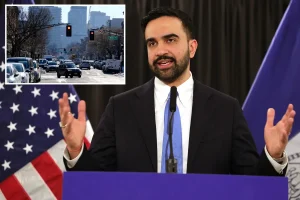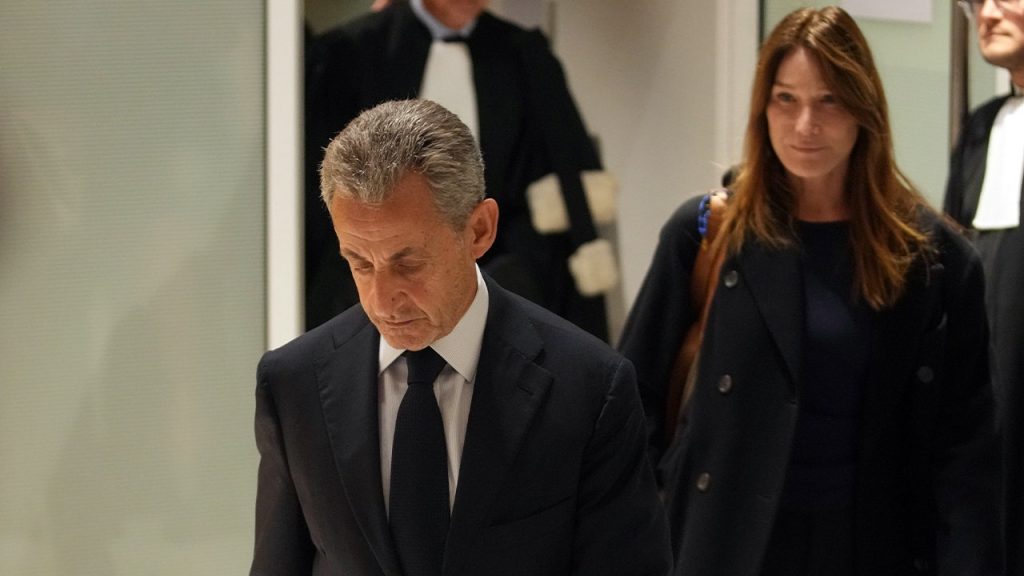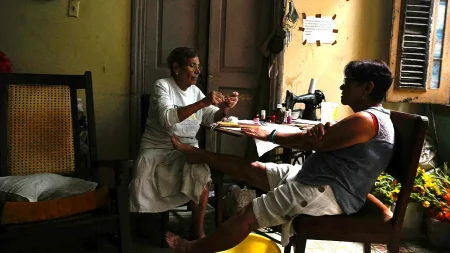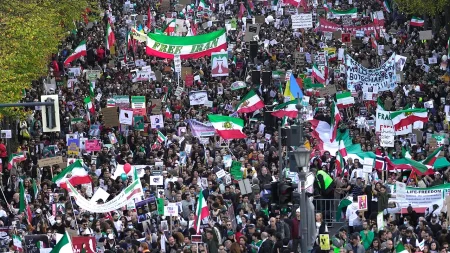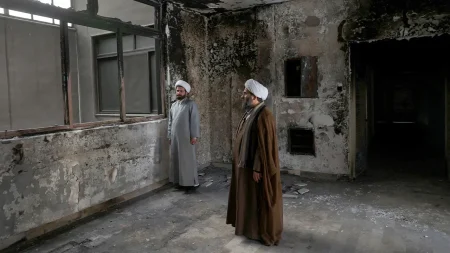Sarkozy’s Fall from Grace: Former French President Faces Historic Prison Sentence
In an unprecedented ruling that has sent shockwaves through France’s political landscape, former President Nicolas Sarkozy has been sentenced to five years in prison after being found guilty of criminal conspiracy. The 70-year-old politician, who led France from 2007 to 2012, was convicted of participating in a scheme to finance his 2007 presidential campaign with funds from Libya during Muammar Gaddafi’s rule. Standing defiantly outside the Paris courthouse with his wife, singer and model Carla Bruni-Sarkozy, at his side, Sarkozy proclaimed his innocence despite the court’s decision. “If they absolutely want me to sleep in prison, I will sleep in prison. But with my head held high. I am innocent. This injustice is a scandal,” he declared, adding emotionally, “What they humiliated today is France.” Though the court stated that Sarkozy would not be immediately taken into custody, with his prison term to begin at a later date, the gravity of this moment cannot be understated – this marks the first time in modern French history that a former president will serve time behind bars.
The panel of judges found Sarkozy guilty of criminal association between 2005 and 2007, during his tenure as interior minister before becoming president. The court determined he had permitted close aides to seek campaign funding from Libya in exchange for diplomatic favors during Gaddafi’s dictatorship. Chief judge Nathalie Gavarino delivered a scathing assessment, stating that the conspiracy aimed “to prepare an act of corruption at the highest possible level in the event that you were elected President of the Republic.” She characterized the facts of the case as “exceptionally serious” and damaging to public trust in France’s democratic institutions. It’s worth noting that Sarkozy was acquitted of three other charges, including passive corruption and illegal campaign financing, though this provided little consolation given the severity of the conspiracy conviction.
Throughout the three-month trial, Sarkozy vehemently rejected the allegations, characterizing them as merely an “idea” pursued by his aides without his knowledge or approval. “I am being convicted for supposedly allowing my staff to pursue the idea – the idea of illegal financing,” he argued in his defense. However, the court was unconvinced by this portrayal of events. The judges ruled that Sarkozy and his inner circle had secretly met with Libyan intelligence chief Abdullah al-Senoussi, Gaddafi’s brother-in-law, as part of what they described as a “corruption pact.” The court acknowledged it could not definitively prove that Libyan funds directly reached Sarkozy’s campaign but emphasized that French law allows for conviction if corrupt intent is established, even in the absence of a proven financial transfer – a legal principle that ultimately sealed Sarkozy’s fate.
The conviction has also ensnared two of Sarkozy’s longtime political allies. Former Interior Minister Brice Hortefeux received a two-year sentence to be served under electronic monitoring, while Claude Guéant, Sarkozy’s ex-chief of staff, was sentenced to six years in prison but spared immediate incarceration due to health concerns. The coordinated actions of these high-ranking officials suggest a systematic effort to circumvent campaign finance laws and forge illicit connections with the Libyan regime, according to the court’s findings. This case represents not just the downfall of a single politician but exposes the broader ethical challenges within the highest echelons of French governance, raising questions about accountability and transparency in democratic systems.
The roots of this scandal stretch back to 2011 when Libyan officials first claimed that Tripoli had channeled millions of euros to Sarkozy’s campaign. These allegations emerged during the tumultuous period of the Arab Spring, which ultimately led to Gaddafi’s overthrow and death – creating a complex geopolitical backdrop to the investigation. For Sarkozy, this conviction is not an isolated legal problem but rather the latest in a series of judicial battles he has faced since leaving office. He has previously been convicted on separate charges of corruption and illegal campaign financing, creating a pattern of legal troubles that has tarnished his political legacy. Despite these setbacks, Sarkozy has remained a significant figure in French conservative politics, maintaining influence within his party and continuing to shape political discourse even as legal challenges mounted.
As Sarkozy vows to appeal the conviction, this case highlights the tension between political power and judicial accountability in democratic societies. The unprecedented nature of the sentence – a former head of state facing actual prison time rather than a suspended sentence – signals a potential shift in how France addresses corruption among its highest officials. For ordinary French citizens, the case presents a complex emotional landscape: some view it as a triumph of the rule of law, proving that no one is above justice regardless of their former position, while others, particularly Sarkozy’s supporters, see it as a politically motivated prosecution. Regardless of one’s perspective, the conviction represents a watershed moment in French political history, one that will likely influence public trust in institutions and shape how future generations understand the relationships between money, power, and democratic governance in the Fifth Republic.
